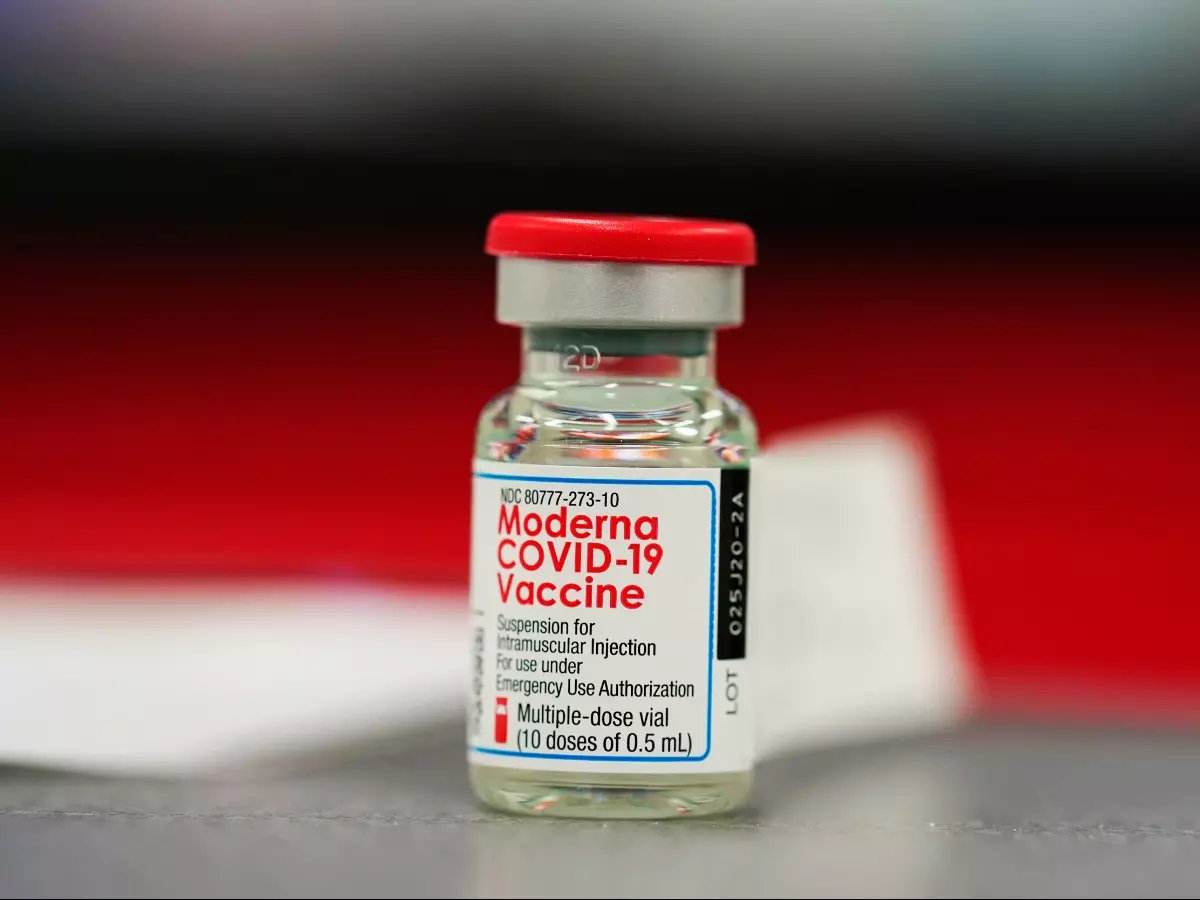Moderna Set To Become The Fourth COVID-19 Vaccine In India, Pfizer Approval Likely Soon
Two mRNA vaccines are soon set to be available in India as drug regulator DCGI has granted permission to Mumbai-based pharmaceutical company Cipla to import Moderna's COVID-19 vaccine for restricted emergency use in the country.

Two mRNA vaccines are soon set to be available in India as drug regulator DCGI has granted permission to Mumbai-based pharmaceutical company Cipla to import Moderna's COVID-19 vaccine for restricted emergency use in the country.
"Drugs Controller General of India (DCGI) has granted permission to Cipla to import Moderna's COVID-19 vaccine for restricted emergency use in the country as per the provisions of the New Drugs and Clinical Trial Rules , 2019 under Drugs and Cosmetics Act, 1940," an official said.
 Reuters
Reuters
Fourth vaccine in India
Moderna's vaccine will be the fourth COVID-19 jab to be available in India after Covishield, Covaxin and Sputnik.
"There are four vaccines now Covaxin, Covishield, SputnikV and Moderna. We will soon close the deal on Pfizer as well," Dr. VK Paul, Member-Health, Niti Aayog said on Tuesday.
New drug permission has been granted to Moderna, the first internationally developed vaccine. This new drug permission is for restricted use: Dr. VK Paul, Member-Health, Niti Aayog pic.twitter.com/c84VWDL4GZ
¡ª ANI (@ANI) June 29, 2021
On Monday, Cipla filed the application seeking permission for import of Moderna's vaccine referring to DCGI notices dated April 15 and June 1 according to which if the vaccine is approved by the USFDA for EUA, the vaccine can be granted marketing authorisation without bridging trial and assessment of safety data of first 100 beneficiaries of vaccines shall be submitted before rolling out in immunisation programme.
 AFP
AFP
Unlike Covishield, COVAXIN and Sputnik V, Moderna and Pfizer vaccines are mRNA based.
These vaccines deliver mRNA, coated in lipid (fat), into cells. Once inside, your body uses instructions in the mRNA to make SARS-CoV-2 spike proteins. The immune response protects around 95% of people vaccinated with either vaccine from developing COVID-19.
Such mRNA vaccines have many benefits. They are quick to design, so once the manufacturing platform is set up, mRNA vaccines can be designed to target different viruses, or variants, very quickly. The vaccine manufacturing is also fully synthetic, and doesn¡¯t rely on living cells like chicken eggs, or cultured cell lines.
 AFP
AFP
India had been trying to bring the two vaccines to the country for some time, but the negotiations were stuck due to several issues including legal protection to vaccine manufacturers.
Pfizer which agreed to start supply COVID-19 vaccines to India as early as July had sought an indemnity bond that will exempt it from legal claims in case there are any adverse effects from the vaccine.
